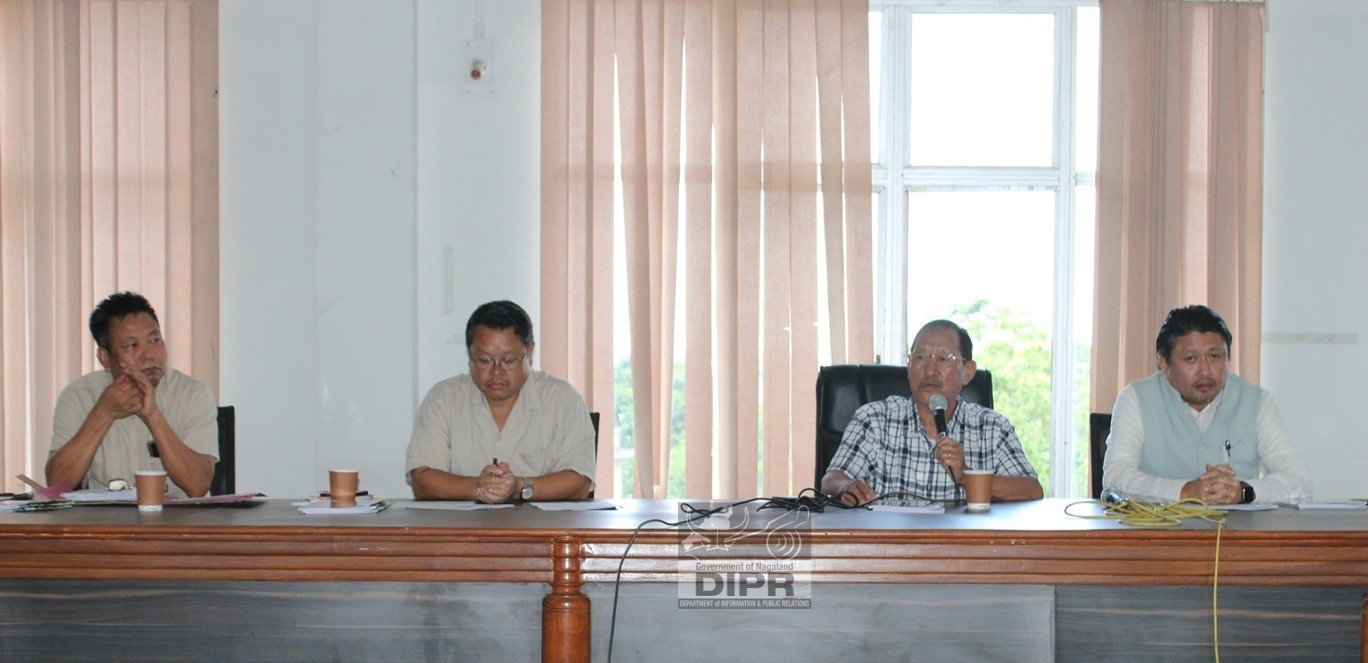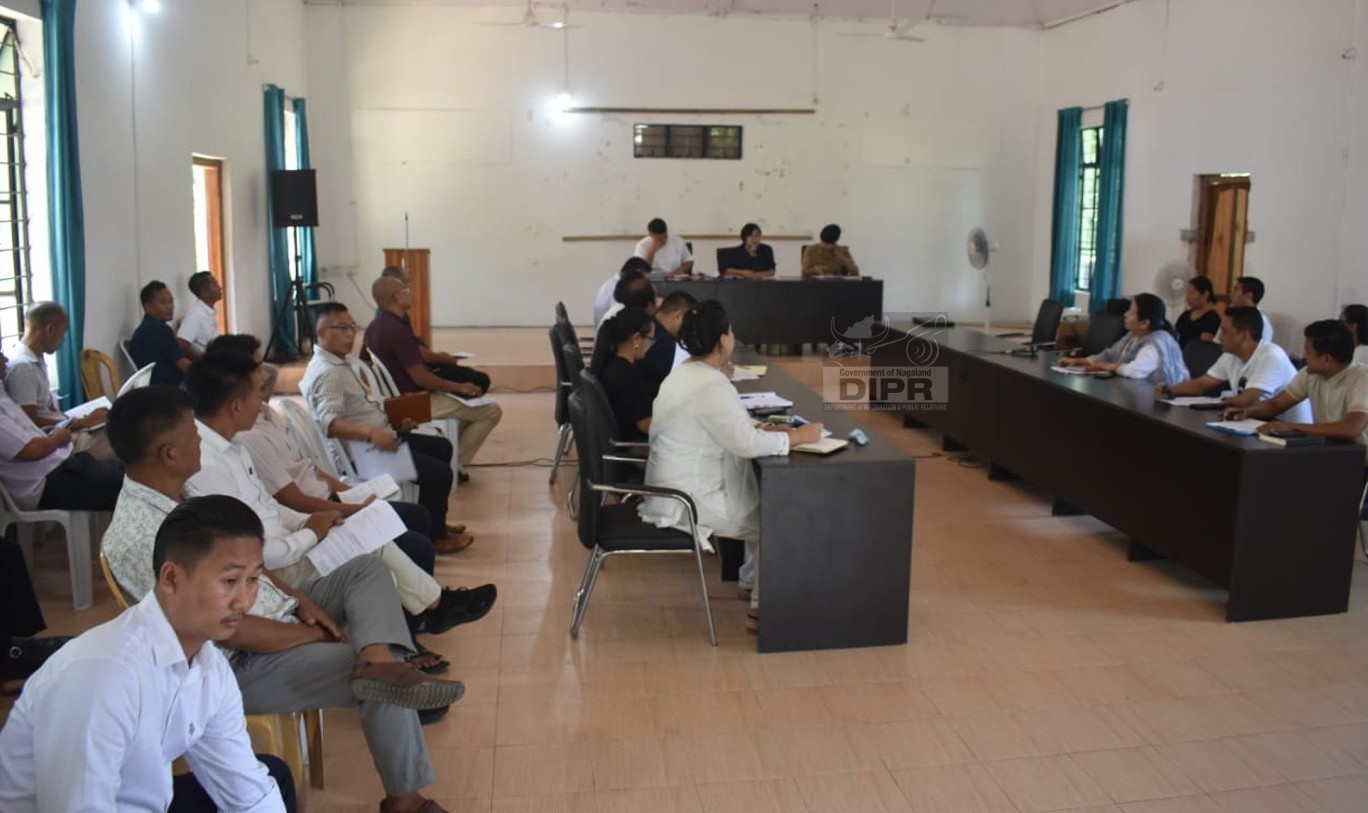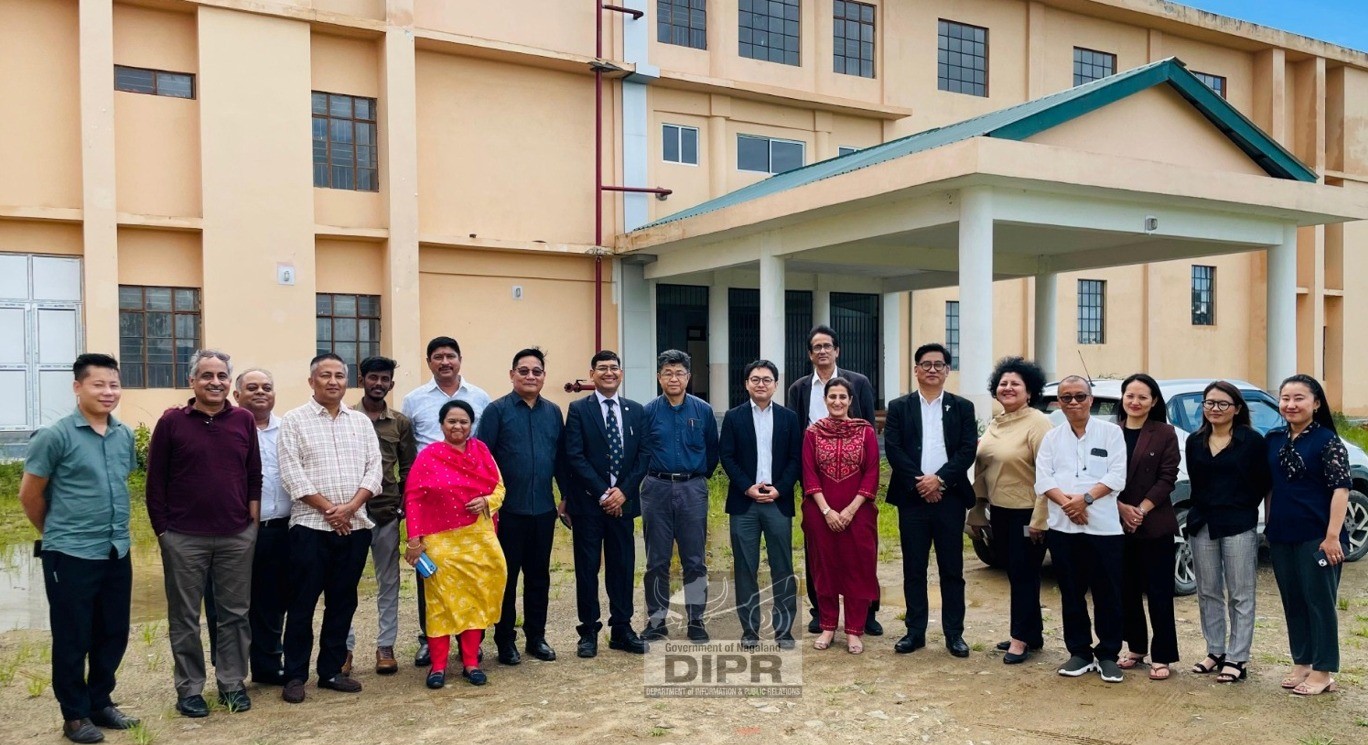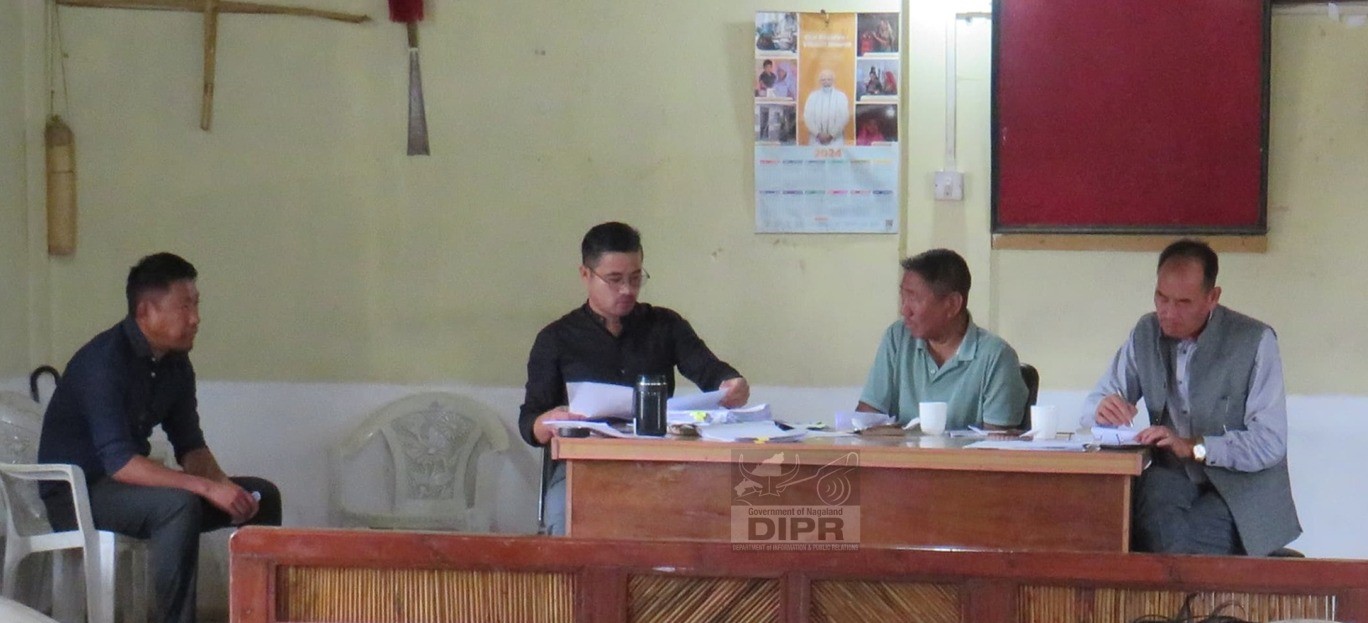A one-day training programme on value addition of fish products for Nagaland State Rural Livelihood Mission (NSRLM) Self Help Groups (SHGs) under Gender Budgeting 2020-2021 implemented by department of Fisheries & Aquatic Resources, Government of Nagaland was conducted on 19th November 2021 at Wokha.
The resources persons for the day were District Fisheries & Aquatic Resources Officer, Wokha, C. Dory Yanthan, District Functional Specialist Daniel Ovung, Area Coordinator Renbeni Patton and Victor Ovung and other supporting staff assisted in conducting the training programme.
These time the trainees (SFGs) were selected from Englan Range area as the villages are in close proximity to Doyang, whereby they can easily get/procure fresh fishes from Doyang, as local Doyang fishes are bountifully available and can be availed anytime.
28 trainees from 13 (thirteen) different SHGs from Englan Yingsung Federation (EYF) and Village Level Organisation (VLO) from villages like Old & New Riphyim village, old & New Changsu village, Englan and Yikhum Village attended the training programme. The trainees were imparted hands-on demonstration and training about making Fish- cutlets, Fish- fingers, Fish- pickles and fish- soup.
District Fisheries & Aquatic Resources Officer, Wokha, C. Dory Yanthan while briefing the trainees stated that hygiene is very important and asked the trainees to wear proper gears while preparing the products and she also shared about the different qualities of ingredients and proportionate use of ingredients for quality production. Yanthan also urged the trainees to be sincere and attend the training programme seriously as we can earn livelihood for our survivor. She also added that this is a convergence programme with NSRLM and implemented by department of Fisheries and Aquatic Resources.
It may be mentioned that value added fish products is so attractive in the processing industry today with the fact that, this process generates and accelerates earnings and also plays a major role in the employment generation especially for weaker sections and women folks. Thus the State Fishery department has been contemplating such knowledge of value addition in all parts of the districts of the State especially for the individuals, educated unemployed, gender empowerment approaches like NGOs, women and SHGs etc to help them establish small scale enterprise based on value added fish products, which will trigger tremendous positive response from our local populace.
(Zubenthung, IA Wokha)





